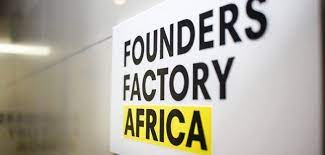Founders Factory Africa (FFA), an early-stage accelerator and investor based in South Africa, successfully generated $114 million this week.
The company intends to make use of the impact financing provided by the Mastercard Foundation and Johnson & Johnson Impact Ventures in order “to scale its model to better serve founders across the African tech ecosystem.”
FFA blends the venture studio and venture capital models in order to provide early-stage startups who are developing local solutions to local difficulties with investment capital and hands-on support. The hybrid investment and venture-building approach that the company uses was established in 2018 by Roo Rogers, Alina Truhina, and Sam Sturm. The concept receives support from both corporate and impact investment partners.
Read also: Female founders, investors to attend WWBA Assembly in Kenya
The efforts so far
2019 marked the beginning of FFA’s collaboration with Standard Bank, which resulted in the bank’s acceptance of five fintech businesses into its venture programme. In the same year, the company entered into an agreement with the South African healthcare corporation Netcare and chose 35 African health-tech firms to participate in its acceleration and incubation programme.
In addition, the FFA made an announcement in 2021 on a partnership with the Small Foundation. Through this partnership, 18 agritech businesses were chosen to participate in an acceleration and incubation programme.
The three different programmes each awarded the selected firms a cash prize of between $40,000 and $250,000 in exchange for a different percentage of the company’s stock. FFA not only offered these start-ups with financial backing, but also with operational and technical knowledge, such as individualised support services in the areas of product development, user experience and interface design, data science, engineering, business development, and growth marketing.
The corporate investors offered the startups access to distribution channels, customer acquisition, pilots, data, intellectual property, and experience thanks to the agreements that were formed between the companies.
Since it was founded in 2018, FFA has provided financial backing and other assistance to 55 different entrepreneurs across 11 countries in Africa. Some of these startups are LipaLater and Asaak. It offers equity funding of up to $250,000 to entrepreneurs in the idea, pre-seed, and seed phases, as well as catalytic funding of up to $150,000 in non-dilutive funds for portfolio companies.
However, the newly reported enormous fund raise by FFA is not going to be used only for equity and catalytic investments in new and established enterprises.
“The allocation details are still being structured and finalized with various investors on how that would play out. We are very clear on the fact that our model from day one has been quite operationally heavy to unlock support growth for our startups,” CEO Bongani Sithole said.
“So that means hiring great talent to unlock that growth, bolstering our support structure and building out IP to help our founders scale their businesses.”
Regarding Founders Factory Africa partnership with Stanbic bank
In light of this additional investment, and if there be any adjustments made to the FFA plan that was developed in collaboration with Standard Bank, Small Foundation, and Netcare, Sithole had this to say:
“The structure we have built over the last four and a half years covers three sectors: healthtech with Small Foundation, fintech with Standard Bank and agritech with Small Foundation. These were the three main drivers in the African context to have an entry point and drive our initial vision that we’ve started with.”
“With a recent capital, we’ve seen many more sectors beginning to emerge in the African continent, so we’ve decided to be more agnostic. The idea is not to change the strategy; it’s to take opportunities in these new emerging sectors. This expansion for us is to make sure that we cover the bases of what is essential in the African continent to build further faster and, hence, that is, in a way, new partnerships to unlock growth for us. So that, for me, is not a change in strategy. It’s an evolution of our model.”
